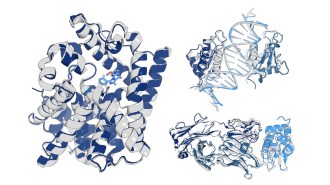- More than 2 years ago
From San Francisco, at the spring national meeting of the American Chemical Society
Perfumers struggle to make every bottle of scent smell just as rosy as the last. After a struggle of their own, scientists have now discovered an important clue to the way nature makes the chemicals that give rose oil—an ingredient in many perfumes—its sweet smell.
Chemists suspected that roses make some of their major scent chemicals by breaking down carotenoids, the compounds in petals that give red roses their hue. However, scientists had never caught the flowers in the act.
Researchers in Japan have now found evidence of a carotenoid-processing enzyme in rose petals. Aroma chemist Naoharu Watanabe of Shizuoka University presented the findings. The researchers crushed 10 kilograms of Bulgarian rose petals for tests that found evidence of enzyme activity that turns carotenoids into chemical precursors of beta-damascenone, a scent compound in rose oil. Scientists would like to purify the enzymes that produce pure floral notes because chemists have a hard time duplicating them in the lab, says Watanabe.
Although the chemists have found the petals’ enzyme activity, no one has succeeded in purifying the enzyme, says Peter Fleischmann, Watanabe’s colleague at Shizuoka University. Fleischmann has narrowed the search to four or five proteins that break down carotenoids in quince and starfruit, he said in a separate presentation.
The scientists hope to have the long-sought enzyme in hand soon. “It’s quite promising,” says Fleischmann.






